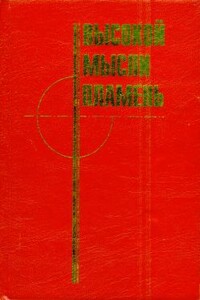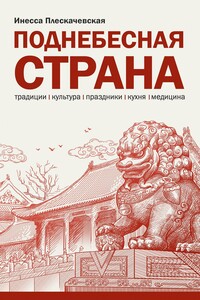Doubtless, too, I thought, there were passages which she had not seen fit to read to me: some more intimate bits of gossip about those brilliant men and women in Berlin whom I then knew only as names. With the eager curiosity of a boy I sought the key, and in a moment had unlocked the chest.
There they lay, those neat, faded bundles, slightly yellow, addressed in a variety of hands. Idly I selected a packet and glanced over the envelopes it contained, lingering, in anticipation of the revelations that might be in them. I must have read a dozen letters before my eye fell upon the envelope that so completely changed my life.
It lay in a corner of the chest, as if hidden from too curious eyes a yellow square of paper, distinguished from its fellows by the quality of the stationery alone, and by its appearance of greater age. But I knew, before I had read fifty words of it, that I was holding in my hands a document that was more explosive than dynamite!
For this letter, written to my aunt years before, by one of the most exalted personages in all Germany, contained statements which, had they been made by anyone else, would have been treason to utter.
Those of you whose memories go back tc the last twenty years of the nineteenth century, will readily recall the notorious ill-feeling that existed between Wilhelm II. and his mother, Victoria, the Dowager Empress Friedrich. Stories have so often been told of this enmity, culminating in the virtual banishment from Berlin of the Queen Mother, that I need not do more than mention them. But what is not so generally known is the small esteem in which Victoria was held by the entire German people. During the twenty years of her married life as the wife of the then Crown Prince Friedrich, she was treated by Berlin Society with the most thinly veiled hostility. Even Bismarck made no attempt to conceal his dislike for her, and accused her to quote his own words of having "poisoned the fountain of Hohenzollern blood at its source."
Victoria, for her part, although she seems to have had no animosity towards the German people, certainly possessed little love for her eldest son, and did her best to delay his accession to the Imperial throne as long as she could. When in 1888 Wilhelm I. was dying, she tried her utmost to secure the succession to her husband, who was then lying dangerously ill at San Remo. "Cancer," the physicians pronounced the trouble, and even the great German specialist, Bergmann, agreed with their diagnosis. There is a law that prevents anyone with an incurable disease, such as cancer, from ascending the Prussian throne; but Victoria knew too well the attitude of her son, Wilhelm, towards herself, not to wish to do everything in her power to prevent him from becoming Emperor so long as she could. In her extremity she appealed to her mother, Queen Victoria of England, who sent Sir Morell Mackenzie, the great English surgeon, to San Remo to report on Friedrich's condition.
Mackenzie opposed Bergmann and said the disease was not cancer; and the physicians inserted a silver tube in the patient's throat, and in due course he became Emperor Friedrich III.
But in spite of Mackenzie and the silver tube, Friedrich III. died after a reign of ninety-eight days and he died of cancer.
Now what was the reason for this hostility between mother and son and between Empress and subjects? There have been many answers given Victoria's love for England, her colossal lack of tact, her impatient unconventionality. Berlin whispered of a dinner in Holland years before, when Victoria had entertained some English people she met there people she had never seen before and had finished her repast by smoking a cigar. That in the days when the sight of a woman smoking horrified the German soul! And Berlin hinted at worse unconventionalities than this.
As for the animosity of the Kaiser, this was attributed to the fact that he held her responsible for his withered left arm.
Plausible reasons, all of these, and possibly true. But consider, if you will, the rumours that followed Victoria all her life the story of an early attachment to the Count Seckendorf, her husband's associate during the Seven Weeks' War of 1866 the reports, sometimes denied but generally believed, of her marriage to the Count not long before her death. True or not, these stories what does it matter?


